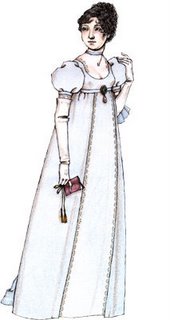 I've been reading about JA's juvenilia. I really want to read this one (as described on Wikipedia):
I've been reading about JA's juvenilia. I really want to read this one (as described on Wikipedia):Love and Freindship is a juvenile story by Jane Austen, dated 1790, when Austen was 14 years old. Written in epistolary form, like her later unpublished novella, Lady Susan, it is likely one of the tales she wrote for the amusement of her family. The installments, written as letters from the heroine Laura, to Marianne, the daughter of her friend, Isabel, "La Comtesse de Feullide," may have come about as nightly readings by the young Jane in the Austen home. Love and Freindship (the misspelling is one of many in the story) is clearly a parody of romantic novels Austen read as a child. This is clear even from the subtitle, "Deceived in Freindship and Betrayed in Love," which totally undercuts the title. In form, it resembles a fairy tale as much as anything else, featuring wild coincidences and turns of fortune, but Austen is determined to lampoon the conventions of romantic stories, right down to the utter failure of romantic fainting spells, which always turn out badly for the female characters. In this story we can see the development of Austen's sharp wit and distain for romantic sensibility, so characteristic of her later novels.

